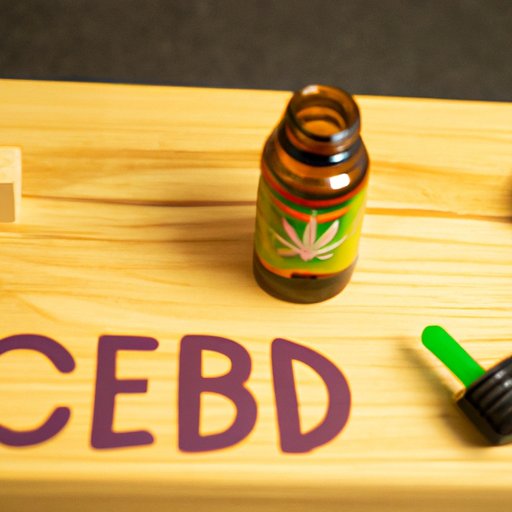Introduction
CBD, or cannabidiol, has grown in popularity for its potential health benefits, including relief from pain, anxiety, and insomnia. However, its relationship to the cannabis plant and the legal landscape surrounding its use has created confusion and uncertainty, particularly for federal employees. In this article, we aim to help federal employees navigate the complexities of using CBD, including its legal and ethical implications, drug testing policies, and potential benefits and risks.
Navigating the Legality of CBD Use for Federal Employees: What You Need to Know
The 2018 Farm Bill legalized hemp-derived CBD at the federal level, but it remains illegal under certain circumstances and varies state by state. The FDA has not approved of any CBD products, and as a result, the labeling, purity, and dosage of CBD products are not regulated. This ambiguity can create unique challenges and risks for federal employees seeking to use CBD.
It is important for federal employees to be aware of the legal landscape surrounding CBD and the policies of their agency. Employees should also be cautious about which CBD products they use, taking care to purchase from reputable sources, and always discuss CBD use with their healthcare provider.

CBD and Federal Employment: Separating Fact from Fiction
One major concern for federal employees using CBD is whether it will impact employment. While CBD itself is not typically included in drug tests, it can sometimes contain trace amounts of THC. Federal agencies have different policies and thresholds for drug tests, so it is crucial for employees to review their agency’s testing policies and consult with their supervisor or HR department about any concerns.
Communication with employers is key when it comes to CBD use. Federal employees should be transparent with their employer and provide documentation about the products they use, such as Certificates of Analysis (COA).

Exploring the Debate over CBD Use for Federal Workers
The debate over CBD use among federal employees centers around concerns over safety, efficacy, and ethical considerations. Some proponents point to its potential to alleviate symptoms of anxiety, pain, and insomnia, while others raise concerns about the lack of regulation and research into the long-term effects of CBD use.
Ultimately, the decision to use CBD as a federal employee is a personal one that should be weighed carefully. It is important for employees to stay informed about the latest research and engage in open dialogue with their healthcare provider, employer, and colleagues.
The Potential Benefits of CBD for Federal Employees: Is It Worth the Risk?
While research on the medical benefits of CBD is still limited, studies have shown promising results for managing symptoms of anxiety, pain, and insomnia. However, it is important to consider the potential risks and side effects of CBD use, including sedation, dry mouth, and potential interactions with other medications.
Federal employees should consult with their healthcare provider to weigh the potential benefits and risks of CBD and make an informed decision about its use. They should also consider alternative treatments and self-care practices, such as exercise, therapy, and meditation, to manage symptoms.

Understanding the Legal and Ethical Implications of CBD Use for Federal Government Workers
When it comes to CBD use for federal employees, there are both legal and ethical considerations to be aware of. Federal employees should be mindful of how CBD use may be perceived by their employer and colleagues, and consider the ethical implications of using a product that is not yet approved or regulated by the FDA.
Additionally, federal employees should be aware that the misuse or abuse of CBD could result in disciplinary action, including termination. It is important to always follow agency policies and seek guidance when in doubt.
In the Spotlight: Federal Employees and CBD Use
There have been cases of federal employees facing challenges related to CBD use, including disciplinary action and loss of security clearance. However, there have also been cases of successful outcomes and advocacy for employee rights.
It is important for federal employees to stay informed and learn from these cases, as well as advocate for their rights and the right to access safe and effective healthcare options.
Breaking Down the Do’s and Don’ts of CBD Use for Federal Employees
When it comes to using CBD as a federal employee, there are certain guidelines to follow to ensure safety and compliance with agency policies:
Do:
- Research CBD products from reputable sources
- Consult with your healthcare provider
- Be transparent with your employer and provide documentation
- Advocate for your rights as a federal employee
Don’t:
- Misuse or abuse CBD products
- Ignore agency policies and testing requirements
- Assume all CBD products are created equal
- Use CBD products without consulting with your healthcare provider
By following these do’s and don’ts, federal employees can navigate the complexities of CBD use and make informed decisions about their health and job security.
Conclusion
CBD use remains a complex and evolving issue for federal employees, and it is crucial for employees to stay informed about the legal and ethical implications surrounding its use. By researching products, consulting with healthcare providers, and communicating with employers, federal employees can make the best decision for their health and career. At the same time, advocating for access to safe and effective healthcare options is essential for all employees.
